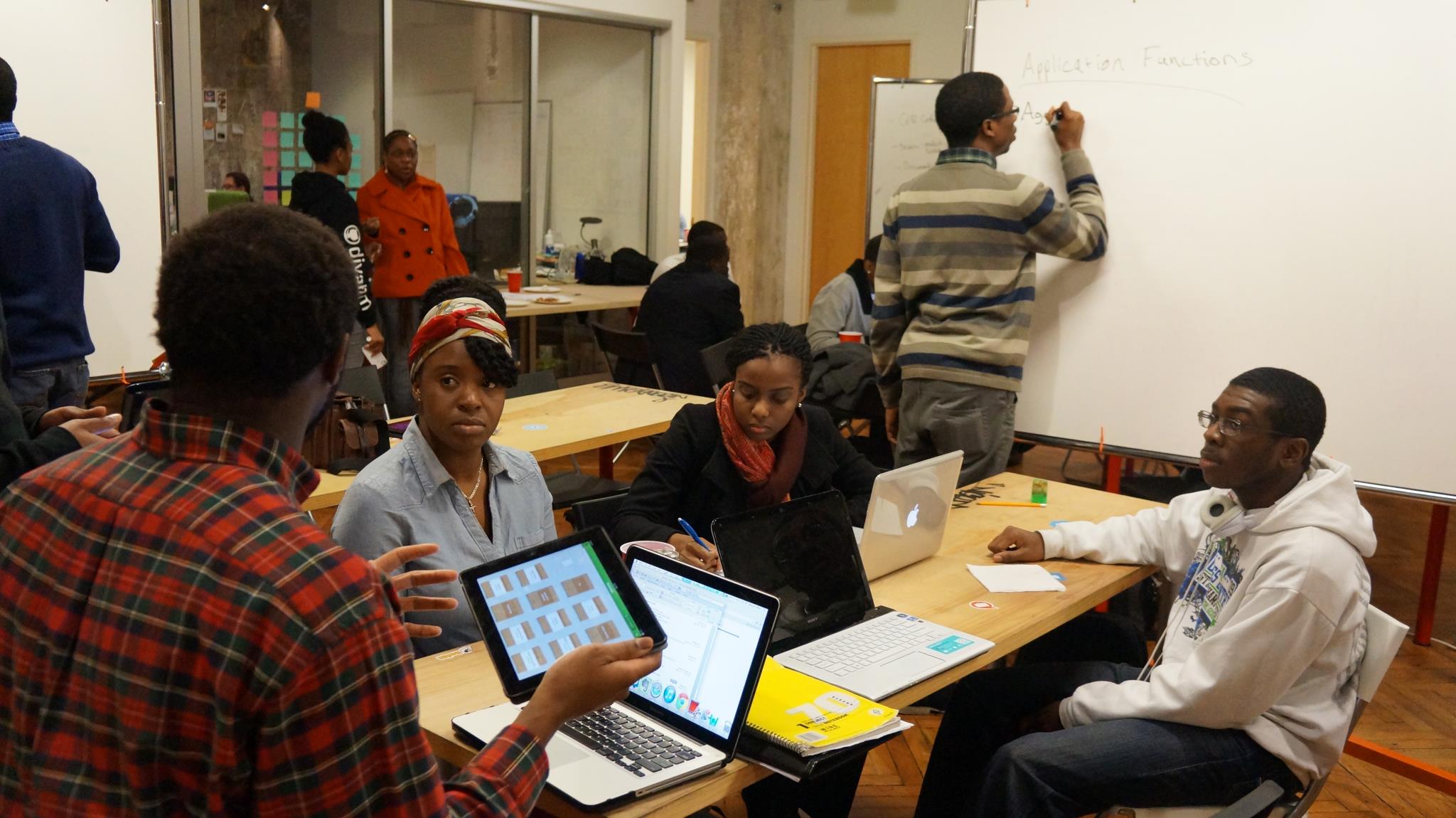A group of Baltimore technologists are looking to bring together the resources of the city’s hackathons to work on some of the city’s deepest problems.
Hack Baltimore is aiming to hold a citywide hackathon in the spring of 2020.
Launching nearly a year and a half before the event, co-organizer Delali Dzirasa said the goal is to soft-launch with a civic event in the spring of 2019 and gather support from the tech community and the city’s civic and nonprofit organizations and community associations.
The organization identified more than a dozen weekend hackathons held throughout the year, whether it’s the Baltimore Hackathon, college-based HopHacks or MedHacks, the student-run Harbor Hacks, or more focused efforts like the Abilities Hackathon and Hack For Impact. It’s evident that they’re spreading because they bring together people working on different disciplines to solve problems, and it’s outside of work. By banding together those resources and creating a large-scale event on one weekend, Dzirasa and the team of organizers want to create a hackathon that’s known on the same scale as the city’s other large festivals.
Along with building up participation, Dzirasa said the time will help allow for preparation.
A big goal of the nine-member organizing team is to create an event that produces technology that will go on to be completed and used within the city after the event.
The group plans to work with the agencies and organizations to identify problems and potential ways to go about solving it that would meet their needs. The areas of focus include: Health and Wellness, Education, Public Safety, Transportation, Housing and Workforce Development. Then they’ll link with technologists and designers who can vet the problems’ potential.
So far they’ve identified partners at the Baltimore City Office of Information and Technology, Baltimore City Health Department, Green Smart Cities and the Baltimore City Department of General Services. Tech companies including Fearless, where Dzirasa is president, SmartLogic and Roadi are also onboard.
Dzirasa said they are developing a web portal where the problems will be shared, allowing hackathon participants to choose a project that suits them. The projects will also be run open source out of Baltimore city’s GitHub page. Leading up to the event, the idea is that access to data or other needs is prepared.
From there, organizers from each hackathon could potentially take an idea or group of challenges and work on those problems. Many of the hackathons have specific focus areas that can help in this effort. The individual hackathons will continue to exist, but this also provides a way to come together.
It provides a way to work on some of the big issues that need to be solved, Dzirasa said.
“We have no shortage of talent here in Baltimore and many amazing assets in and around the city,” he said. “Harnessing all of this brain power in the course of a weekend will help push the needle and move long standing issues into completion.”
Join the conversation!
Find news, events, jobs and people who share your interests on Technical.ly's open community Slack

Baltimore daily roundup: Mayoral candidates talk tech and biz; a guide to greentech vocabulary; a Dutch delegation's visit

Baltimore daily roundup: Medtech made in Baltimore; Sen. Sanders visits Morgan State; Humane Ai review debate

Baltimore daily roundup: An HBCU innovation champion's journey; Sen. Sanders visits Morgan State; Humane Ai review debate


